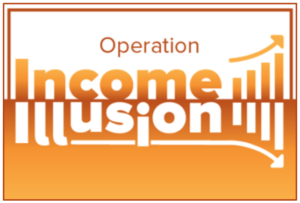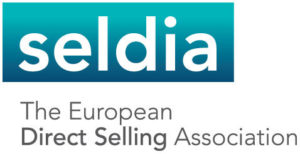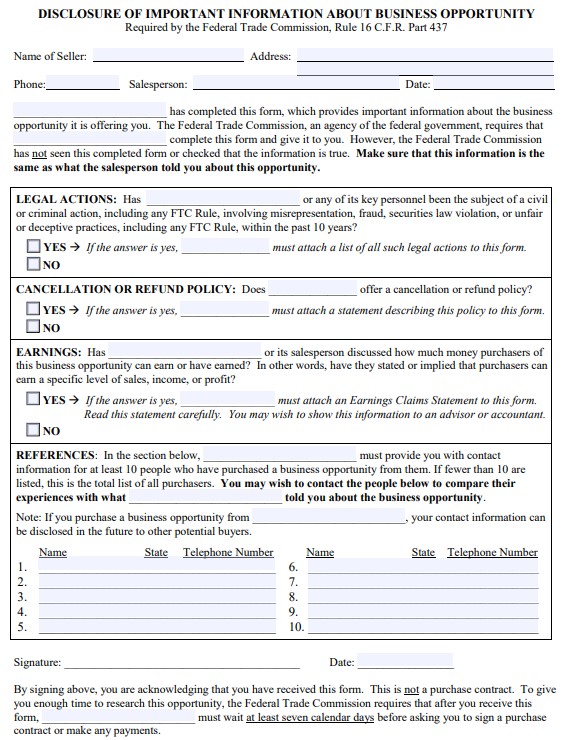DSA
By: David Bland
 In the wake of the Omicron variant’s global surge, as COVID-19 case counts neared their peak of over 800,000 new cases per day across the U.S., the Federal Trade Commission (FTC) publicized a series of cease and desist demands it sent to 25 businesses over the past six months. Granted under the authority of the COVID-19 Consumer Protection Act, the list included four direct sellers targeted in November and December 2021.
In the wake of the Omicron variant’s global surge, as COVID-19 case counts neared their peak of over 800,000 new cases per day across the U.S., the Federal Trade Commission (FTC) publicized a series of cease and desist demands it sent to 25 businesses over the past six months. Granted under the authority of the COVID-19 Consumer Protection Act, the list included four direct sellers targeted in November and December 2021.
Highlights from thought leaders’ Risk Roundup Columns of 2021
Regulators stayed busy in 2021, reminding direct sellers of the unique legal challenges faced by the channel throughout the year. Combined with the ever-increasing importance of addressing ESG and fraud risks facing the entire corporate landscape, we have selected the key insights and advice from our knowledgable contributors to keep SSN’s readers ahead of the curve. Please visit SocialSellingNews.com for the complete articles.
A crucial Supreme Court ruling, FTC strategy shifts and social media challenges impact direct selling in an eventful year.
January Headlines
FTC Launches ‘Operation Income Illusion’
The Federal Trade Commission (FTC), along with 19 federal, state, and local law enforcement partners announced a nationwide crackdown on consumer scams promising income and financial independence. Although no direct selling companies were targeted by this operation, it marked a beginning to the COVID-19-era scrutiny of work-from-home-scams, pyramid schemes and coaching courses, among other businesses.
DSA Rolls Out New Compliance Certification Program
The Direct Selling Association (DSA) began a comprehensive compliance program to be made available to member and non-member companies. The Direct Selling Compliance Professional Certification Program (DSCP-CP) was created for individuals and does not certify an entire company. The program includes four three-hour online sessions for a total of 12 hours and is designed to be taken over several days. Modules include topics such as “Claims Substantiation and Disclosures”; “Product Claims”; “Monitoring and Removal of Claims from Social Media Platforms”; “The Role of Compliance in Your Organization”; and “Conveying the Right Marketing Message.”
Cultural differences create challenges and opportunities for regulators and companies
By: David Bland
European policy and decision-making are always cyclical. There are different cycles of policymaking, and we’re in different phases of policy proposals that affect the direct selling sector.
—Laure Alexandre, Executive Director, SELDIA
 On Jan. 7, 2020, the European Parliament and Council of the European Union entered into force a comprehensive legislative Directive. Often referred to as the Omnibus Directive as part of the “New Deal for Consumers,” Directive (EU) 2019/2161 was crafted to bolster consumer rights within today’s modern digital landscape.
On Jan. 7, 2020, the European Parliament and Council of the European Union entered into force a comprehensive legislative Directive. Often referred to as the Omnibus Directive as part of the “New Deal for Consumers,” Directive (EU) 2019/2161 was crafted to bolster consumer rights within today’s modern digital landscape.
Channel watchdog counsels companies, maintains dialogue with regulators
By: David Bland
For the cases that get to the level of a DSSRC referral, usually there’s an issue of systemic patterns of behavior that are going on—particularly with the claims; it is rarely a one-off post, and, with respect to earnings claims, in particular, it’s often the tip of the iceberg that leads the FTC to a much deeper rabbit hole.
— Peter Marinello, Vice President at BBB National Programs and Director of DSSRC
In 2019, the direct selling channel officially became a self-regulated business sector. Two years on, and the channel is reaping the benefits. Founded by the Direct Selling Association (DSA) and administered by BBB National Programs, the Direct Selling Self-Regulatory Council (DSSRC) is an independent, non-profit organization that is continuing its mission of oversight through monitoring, investigation, and enforcement of the regulations and ethics standards that have been set in place for direct sellers by the Federal Trade Commission (FTC) and the DSA.
Direct sellers should still be prepared for high, competitive threshold and tough regulatory landscape
By: Stephanie Ramirez
In this new era of social selling in the United States, there is a strong focus on customers, so you need a good product. The brand and products are as important as the opportunity.
—Ray Urdaneta, CEO and Co-Founder, MONAT Global
You have to decide beforehand what you’re open to changing and what you’re not open to changing, but that’s going to drive the whole modeling process and the whole testing process.
—Jacques Mizrahi, CEO, SwissJust USA
The United States is a reliable and consistent economy with a long-standing history of growth. According to the economics research firm, Focus Economics, it will most likely retain the title as the world’s largest economy, with a forecasted GDP of $25.3 trillion (USD) in 2024. In addition to the favorable economic climate, in comparison to many other countries, the U.S. is a wealthy nation with over 320 million people, many of whom like to shop.
PEOPLE ON THE MOVE – August
 Camelle Kent, Thirty-One
Camelle Kent, Thirty-One
Thirty-One Gifts has named Camelle Kent as CEO. Kent assumes the role from Elizabeth Thibaudeau, who joined Thirty-One as acting CEO last July. Thibaudeau will remain a board member. Kent’s career spans over 25 years, and she has grown global brands including Gillette, Timberland, and Avon. Most recently, she was CEO at WellPet.
 Dave Nash, 4Life
Dave Nash, 4Life
Dave Nash has been promoted to senior vice president of global markets at 4Life Research. Previously vice president of Greater China, Nash was hired by 4Life in 2018. He has spent considerable time in Asia on behalf of the company and will now continue his work in Asia while broadening his focus to include global sales and operations.
Commissioner Chopra pushes for removal of direct selling exemption
By: David Bland
It is alarming that the FTC seems to have prejudged the public comment process and concluded that the scope of the Rule should be expanded to impose a new regimen of rules and regulations on the direct selling industry.
—Larry Steinberg, Chair of Multilevel Marketing Industry Group, Buchalter
The Federal Trade Commission (FTC) announced on June 14 a review of the Business Opportunity Rule by the end of the year. The Rule was first proposed in 2006 and was finalized with amendments in 2012 after direct selling companies and the Direct Selling Association (DSA) vigorously argued for, and ultimately received, a generalized exclusion from the Rule.
Organizers block channel representatives from contributing
By: David Bland
There were a number of factors that led us to think that the timing was right for this type of conference, including indications from the Federal Trade Commission that they are tightening focus on the MLM industry.
—Douglas M. Brooks, Attorney
Anti-MLM influencers appear to be more interested in fostering a cottage industry of their own than they are to an inclusionary dialogue on how best to promote entrepreneurship.
—Direct Selling Association
For decades, direct selling’s opponents have worked to challenge the channel from the relatively confined spaces within their respective legal, academic and media circles.
The occasional high-profile court case would generate publicity for a few news cycles, and newspaper and magazine articles would follow with passing coverage.













